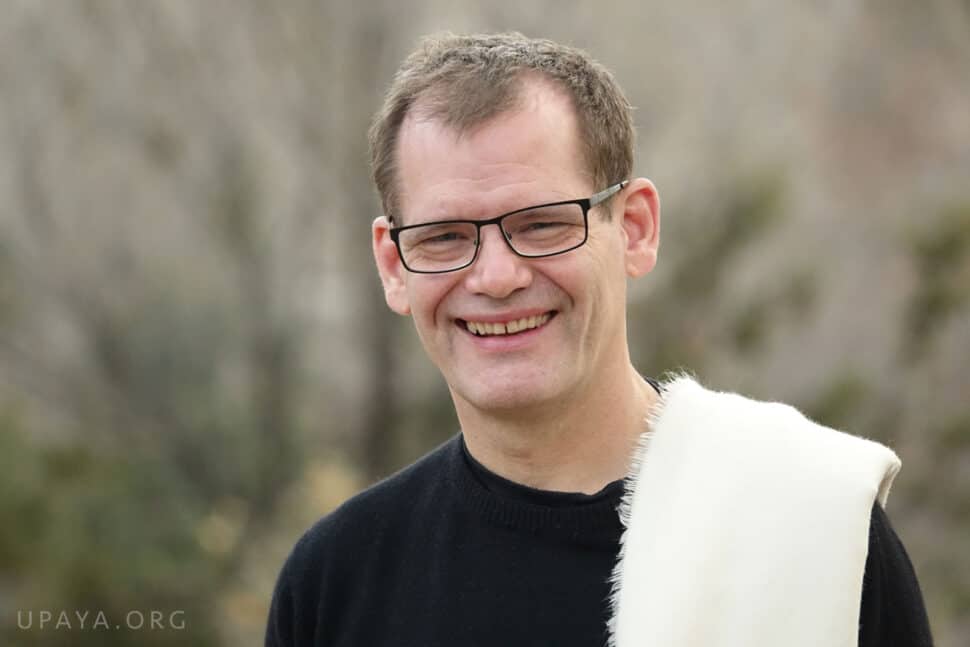Wisdom Library
Latest content
Welcome
Upaya is a valuable resource with videos, podcasts, and blog posts from teachers all across the world.
NEXT DHARMA TALK
Topics
Buddhas And Ancestors Of Old Were As We
The main themes of Sensei Monshin's talk revolve around the essence of Dharma practice across time and cultures, and the personal responsibility each practitioner has towards their practice. Drawing from her recent pilgrimage to Japan, Monshin discusses the direct...
Reflections from Japan
Senseis Kodo, Kozan, and Monshin, alongside Roshi Joan and other students reflect on their recent trip to Japan. Led by Roshi Joan who was accompanied by her priests, and close students the trip aimed to build a connection with the roots of their Zen Buddhist practice...
Gathering Dharma: Listening to the Buddhas in our Backyard, Learning the Dharma Everywhere All at Once
This talk given by Chenxing Han emphasized the interconnectedness of global and personal suffering and the transformative power of community, compassion, and active engagement. She discussed the challenges and polarizations facing society today, urging attendees to...
Brief Flashings in the Phenomenal World
In this Dharma talk, Katie Arnold shares her experiences and insights on the intersections of Zen, running, and life. Katie describes a severe river accident that led her to Zen as a pathway for healing both mentally and physically. Katie discusses her book "Running...
The Bodhisattva’s Activism: Roshi Joan, Dekila Chungyalpa, and John Dunne (Final Session + Vow Ceremony)) – Nov 12, 2023
This final session was a thoughtful discussion on the role and experiences of Bodhisattvas in the modern world. Roshi Joan, Dekila Chungyalpa, and John Dunne emphasize the importance of community, compassion, and the interconnectivity of all beings as realities to be...
The Bodhisattva’s Activism: Roshi Joan, Dekila Chungyalpa, and John Dunne – Nov 11, 2023
In this dynamic session Roshi Joan, Dekila Chungyalpa, and John Dunne dig into the ethical dilemmas, mindfulness practices, and nuances of engaged Buddhism. The group explores some difficult questions around the necessity of sometimes engaging in negative actions to...
The Bodhisattva’s Activism: Panel Q & A With Faculty – Nov 11, 2023
In this panel discussion with John Dunne, Dekila Chungyalpa, and program participants the group reflects on various topics from the previous presentations. One main point of focus centers around "eco-anxiety" and how it is impacting native cultures, whose identities...
Buddhas and ancestors of old were as we
Sensei Monshin assures us that we are not so different from the Buddhas and ancestors that inspire us. ”The Buddha way has been kept alive in so many cultures, conditions, lifestyles, and expressions all over the world. So how is it that the Buddhas and ancestors of...
Reflections from Japan
Fresh off a two-week pilgrimage to Japan, Roshi Joan and Upaya's priests share reflections on their experience. For Roshi Joan, this pilgrimage was about connecting to the historical roots of Zen, cultivating relationships with modern-day practitioners, and touching...
The Way Of Haiku: Waking Up Through Writing (9 of 9)
This is the closing session of this program with Roshi Joan leading it with comments from the participants. To access the resources page for this program, please sign up by clicking here.
The Way Of Haiku: Waking Up Through Writing (8 of 9)
In this impassioned talk, Jimmy Baca shares deeply personal experiences to illustrate the transformative power of writing and the significance of engaging with the present through art. He recounts his journey from being "just a number" as an inmate to becoming a...
The Way Of Haiku: Waking Up Through Writing (7 of 9)
Pico Iyer discusses Haiku as a reflection of Japanese culture, highlighting its brevity, impermanence, and communal aspect. He notes Haiku's integration into modern Japanese life, from education to public displays, underscoring its function as an exercise in...
The Way Of Haiku: Waking Up Through Writing (6 of 9)
Jane Hirshfield reads a Haiku by Basho about a horse eating roadside rose mallow, highlighting its simplicity, descriptive nature, and the human perception it conveys. She elaborates on the poem's themes of impermanence, the cycle of life, and the shared experiences...
The Way Of Haiku: Waking Up Through Writing (5 of 9)
Kazuaki Tanahashi and Peter Levitt's discussion on Haiku delves into the depth and nuances of this poetic form, exploring its historical context, cultural significance, and the intricacies of its composition. They discuss the story of a young female poet who impressed...
